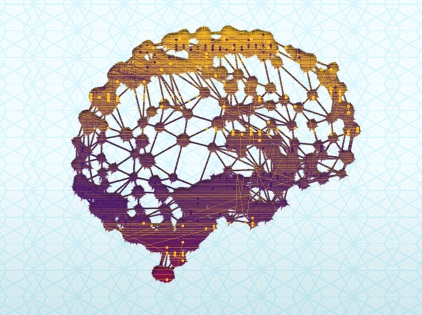

Google has released research demonstrating how artificial neural networks used to train artificial intelligence (AI) and machine learning systems can be run on a device rather than relying on a central machine or powerful cloud-hosted servers.
Dubbed Federated Learning, the new technique is being used to improve how the Gboard virtual keyboard on Android phones are updated, yet keeps users’ data private at the same time.
“When Gboard shows a suggested query, your phone locally stores information about the current context and whether you clicked the suggestion. Federated Learning processes that history on-device to suggest improvements to the next iteration of Gboard’s query suggestion model,” explained Brendan McMahan and Daniel Ramage, research scientists at Google.
The algorithms then learn from the data on the device and changes accordingly. These changes are then summarised as a focussed update and sent back to the cloud-based system, which ingests these changes and those from smartphones, averages the combined changes and subsequently evolves the overall shared machine learning model.
In effect, Federated Learning is a distributed and aggregated approach to training machine learning models and running artificial neural networks, which at the same time protecting the privacy and data of individual Android smartphone users.
“Federated Learning allows for smarter models, lower latency, and less power consumption, all while ensuring privacy. And this approach has another immediate benefit: in addition to providing an update to the shared model, the improved model on your phone can also be used immediately, powering experiences personalised by the way you use your phone,” the researchers said.
While traditional machine learning systems work on large amounts of data, evolving the model after cycles of major data crunching, the Federated Learning technique works on providing higher quality updates rather than rely on sheer volumes of data throughput.
This has the benefits of reducing the amount of communication between a device and a central system; some 10 to 100 times less according to Google’s research, when compared to a more typical machine learning system using an optimisation algorithm like Stochastic Gradient Descent.
So while traditional machine learning systems have more data bandwidth and lower latency, Federated Learning bypasses the problems of higher latency and low throughput by cutting out the need for large numbers of iterative changes to the shared model through providing high quality updates in smaller numbers.
This approach ensures that the machine learning process does not disrupt a user’s daily smartphone activities.
At the same time, updates based on a user’s data but not containing that information, are encrypted and security sent to a centralised server, which bypasses any issues with storing user data in the cloud. Cryptographic techniques also ensure that the coordinating server only decrypts the average updates of hundreds or thousands of updates rather than inspecting individual updates, thereby further protecting people’s privacy.
Google has ambitions to further the use of Federated Learning, alongside pushing its other machine learning research to tackle the training of systems that already have data stored in the cloud and thereby do not benefit from Federated Learning.
“Beyond Gboard query suggestions, for example, we hope to improve the language models that power your keyboard based on what you actually type on your phone (which can have a style all its own) and photo rankings based on what kinds of photos people look at, share, or delete,” the researchers said.
Google is not only working on the software side of machine learning and AI development, but also has its fingers in the hardware pie having developed a chip that it claims can beat CPUs and GPUs in terms of powering AIs.
Quiz: Put your knowledge of artificial intelligence (AI) to the test.
American space agency prepares for testing of Boeing's Starliner, to ensure it has two space…
As UK and Europe develop closer military ties, European Commission says it will invest €1.3…
Zuckerberg seeks to revive Facebook's original spirit, as Meta launches Facebook Friends tab, so users…
Notable development for Meta, after appeal against 2021 WhatsApp privacy fine is backed by advisor…
First sign of shake-up under new CEO Lip-Bu Tan? Three Intel board members confirm they…
Trump's nominee for SEC Chairman, Paul Atkins, has pledged a “rational, coherent, and principled approach”…